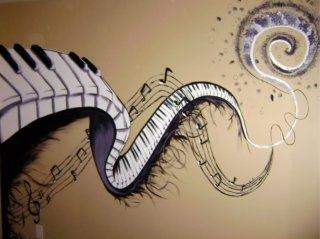Posted Monday March 11, 2024
Most of us have had an earworm stuck in our heads, however, this is different from musical ear syndrome. A person with MES hears the music as if it is in the same room, not like it’s coming from their head.
Auditory hallucinations are phantom sounds and there are several different types: simple, complex, clear, or ambiguous. Simple sounds are commonly described as tinnitus— ringing, buzzing, humming. Complex sounds include rhythm, singing, instruments, or a combination of different sounds, sometimes ‘fuzzy’ or indistinct (ambiguous). At other times music is fully formed (clear)—a piano, violin, or distinct lyrics. Patients commonly describe instrumental music, simple melodies, or songs from early childhood memories.
While it is not well-studied, auditory hallucinations are generally more common in older adults, those with severe hearing loss, or who have cochlea implants, with one study suggesting 33% experience the phenomenon. The brain craves auditory stimulation, and when lacking, it may generate sound to fill this void.
Musical ear syndrome is not necessarily a symptom of a mental health condition. The exact cause of MES is unknown, and in most cases is not a cause for serious concern. Just as tinnitus does not always require medical attention, musical ear syndrome does not always need medical intervention, but several factors could trigger or worsen the symptoms. Potential causes include head injuries, specific medications, stroke, long-term isolation, noise exposure, and tumours. In some cases, it can be associated with cognitive decline, depression, or anxiety. It is advisable that people with depression, anxiety, or stress seek medical attention to treat these underlying conditions. You should also seek medical attention immediately if MES is accompanied by dizziness, tinnitus, hearing loss, or vision problems.
There is no cure for MES, but there are several things you can do to mitigate the symptoms. Here are several management strategies:
- Consult a physician to rule out medical conditions, or brain disorders. While rare, this can relieve anxiety about underlying pathology.
- Review medications: certain medications can cause or worsen MES. Consult your physician about your current medications and any known side effects.
- Treat hearing loss: wearing hearing aids gives the brain the auditory stimulation it craves. Tinnitus patients often find hearing aids reduce or relieve tinnitus, and patients with MES and hearing loss may benefit from a reduced perception of phantom sounds.
- Use masking: create soothing background noise, for example, white noise, nature sounds, or other background noise, to mask the sounds.
- Manage stress: For some patients, stress and anxiety contribute to these perceptions, so if you’re feeling anxious or stressed, consider relaxation techniques like yoga or meditation to calm your mind and reduce symptoms.
Check out the soundly.com blog for more information



